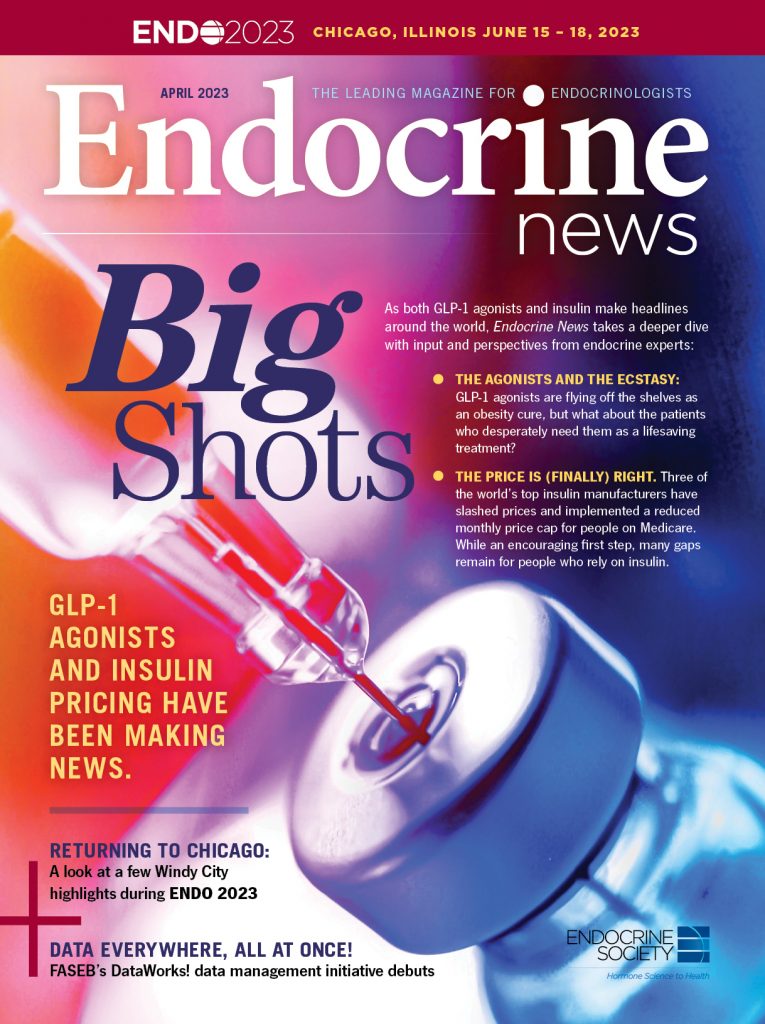
It’s not often that diabetes treatments make it into the monologue for the Academy Awards, but on Sunday March 12, that’s exactly what happened. As OSCARS host Jimmy Kimmel began his hosting duties on that star-studded evening, he quipped, “When I look around this room, I can’t help but wonder if Ozempic is right for me?”
While the comment scored a laugh by those in attendance, likely those watching from home who have seen their diabetes medications run in short supply didn’t crack a smile. Due to newfound popularity of GLP-1 agonists as a quick weight-loss solution, some have found their medications in short supply or more expensive, and in some cases, both. Endocrine News senior editor Derek Bagley looks at this phenomenon in “The Agonists and the Ecstasy” where he talks to endocrinologists about the popularity of these drugs,, as well as some of the inequities many patients face in obtaining treatment. “For patients with diabetes, there have been studies showing that medical providers are less likely to prescribe certain medications to commercially insured patients who are Black, than they are to those who are white,” says Rocio Pereira, MD, chief of Endocrinology at Denver Health; and associate professor of medicine at the University of Colorado, Aurora. “These practices may be due to medical providers having biases about which patients will be able to afford certain medications, or about the effectiveness of medications in different patient groups.”
Bagley doesn’t leave the pharmacy just yet as he discusses the recent spate of insulin price cuts mandated by the Inflation Reduction Act signed into law by President Joe Biden on August 16, 2022. Eli Lilly and Company was the first to put a $35 monthly cap on insulin for people on Medicare, followed in quick succession by Novo Nordisk and Sanofi. In “The Price is (Finally) Right,” a number of endocrinologists weigh in on this news, but all perceive it as definitely a much-needed first step in the right direction. “This has been something the Endocrine Society and all the other professional organizations have been advocating for,” says Robert Vigersky, MD, chief medical officer at Medtronic, director emeritus of Diabetes Institute at Walter Reed National Military Medical Center in Bethesda, Md., and past-president of the Endocrine Society. “It’s a major step forward, but it’s still a step on the journey.”
In another example of “breaking news,” the brand-new data management initiative launched by the Federation of American Societies for Experimental Biology (FASEB) called DataWorks! promises to help researchers keep their data organized as detailed in “Data Everywhere, All at Once!” This new initiative should be a big help to endocrine scientists as they navigate the field of data management and sharing to bring the “biological and biomedical research communities together to advance human health through data sharing and reuse.”
And to get you ready for ENDO 2023 taking place in Chicago June 15 – 18, we have an “Take Me Back to Chicago,” which highlights of the Windy City so you can plan your trip as soon as possible. Since it’s the first all in-person ENDO since 2019, there is a lot of excitement for everyone to get back together in the “real world” to exchange ideas, stories, research, and, of course, hugs and handshakes! If you haven’t registered for ENDO 2023 yet, now you can! Can’t wait to see you all there!

Speaking of scientists and researchers, the other day I had the TV on in the background and I heard a quote that reminded me of our thousands of basic science members: “Nothing is impossible, not if you can imagine it. That’s what being a scientist is all about!” It reminded me of how much enthusiasm the Endocrine Society Basic Science members have for not only their research and their findings, but for the actual, often laborious, and sometimes frustrating process of conducting research. It’s inspiring and always hopeful. And by the way, that quote was uttered Professor Farnsworth on Futurama who was explaining to his clone the importance of scientific research!

